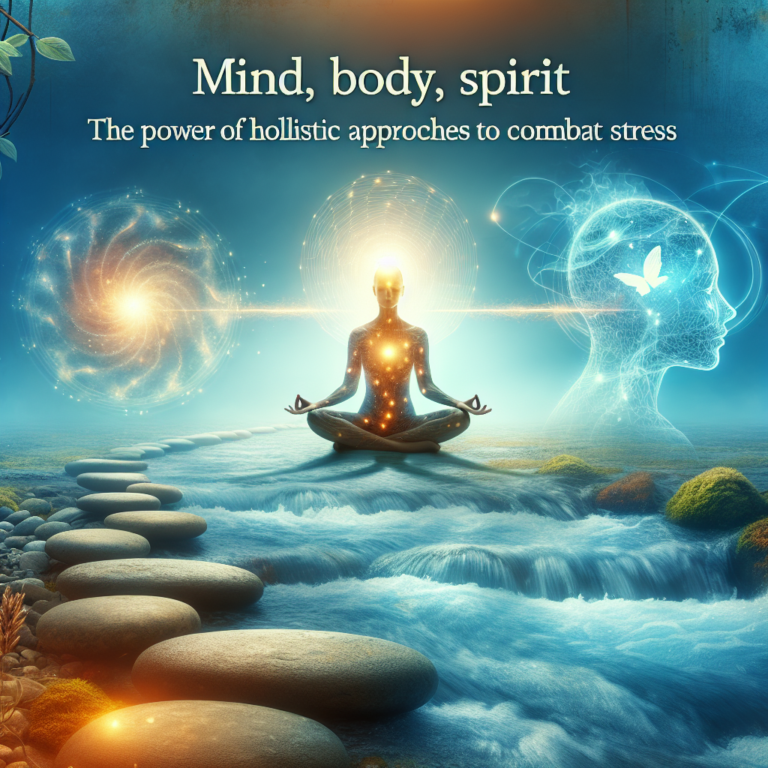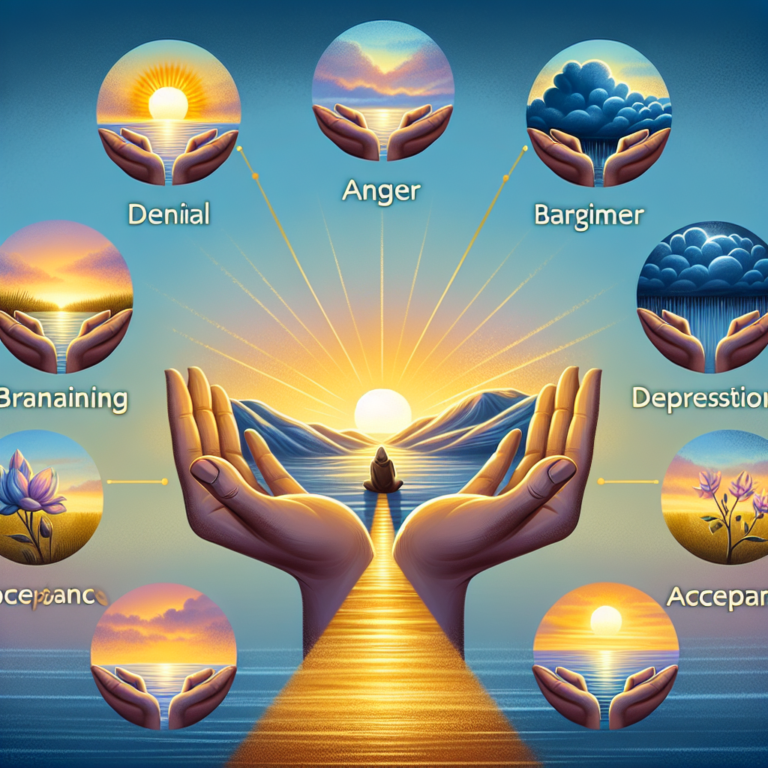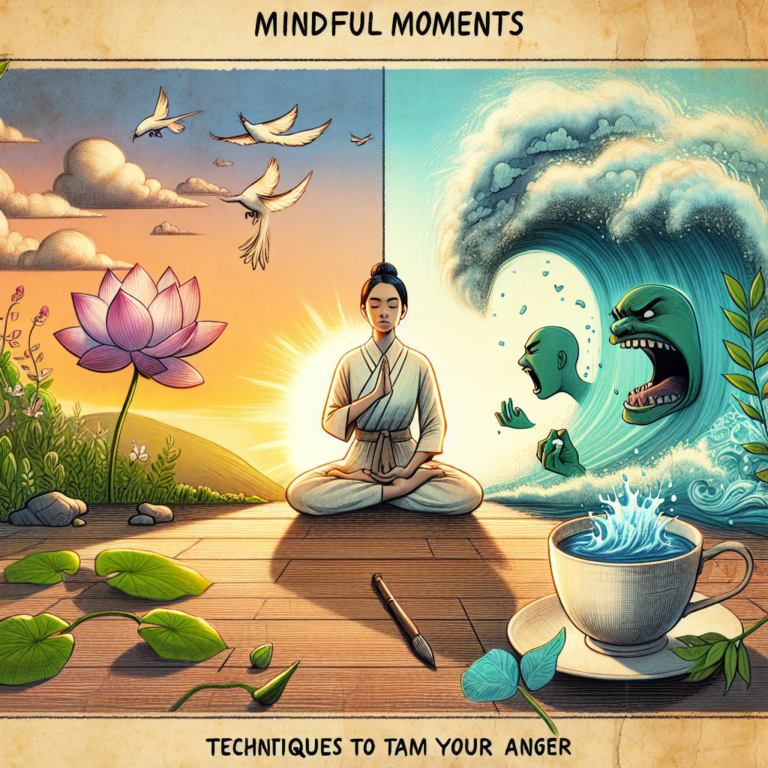
When the World Feels Empty: Essential Mental Health Strategies for Isolation
Introduction
In a world that often thrives on connectivity, isolation can feel like plunging into a vast, empty chasm. Whether due to global crises, personal circumstances, or mental health struggles, many have encountered moments where the world feels empty. In these instances, our mental health takes center stage, demanding strategies to cope with the weight of solitude.
The importance of addressing mental wellbeing during periods of isolation cannot be overstated. The feelings of loneliness, anxiety, and despair can creep in like a thief in the night, robbing us of joy and meaning. Yet, understanding and implementing effective mental health strategies can turn this void into an opportunity for self-discovery and resilience. Let’s journey through the essential mental health strategies for isolation, shedding light on how to navigate these difficult waters with hope and strength.
Understanding Isolation and Mental Health
The Psychological Impact of Isolation
Isolation isn’t just a physical state; it profoundly affects our mental landscape. Studies demonstrate that prolonged isolation can lead to heightened feelings of anxiety, depression, and stress. The World Health Organization has pointed out that individuals in isolation often face a myriad of psychological issues, making it critical to employ effective strategies.
Key Statistics on Mental Health During Isolation
| Factor | Percentage Impact |
|---|---|
| Increase in anxiety symptoms | 47% |
| Rise in depression rates | 38% |
| Loneliness during isolation | 50% |
Case Study: Navigating Lockdowns
During the COVID-19 pandemic, millions experienced enforced isolation. Consider the case of Sarah, who lived alone. Initially, the newfound time seemed like a blessing, but as days turned into weeks, she felt enveloped by darkness. Seeking therapy and incorporating strategies, such as daily routines and connecting with friends virtually, changed her narrative. Sarah learned that even when the world felt empty, she could fill it with meaningful actions.
The Emotional Underpinnings of Feeling Empty
Emotional emptiness can stem from various sources, like unresolved trauma, unfulfilled desires, or chronic stress. Understanding these emotions helps identify their triggers, enabling more effective mental health strategies for isolation. Recognizing the root can empower individuals to confront their challenges rather than feeling overwhelmed by them.
Essential Mental Health Strategies for Isolation
1. Establish a Routine
One of the most effective ways to combat feelings of isolation is by cultivating a structured daily routine. Purpose fills the void, providing a sense of normalcy that can counteract emotional instability.
Steps to Building a Routine:
- Set a Wake-Up Time: Create a consistent daily rhythm.
- Incorporate Activities: Include work, exercise, hobbies, and relaxation.
- Prioritize Self-Care: Ensure time is dedicated to mental and physical health.
A solid routine serves as an anchor, helping navigate turbulent emotions when the world feels empty.
2. Embrace Mindfulness and Meditation
Mindfulness practices can exponentially improve mental resilience. Techniques like meditation allow individuals to ground themselves in the present, reducing anxiety about the future or regret about the past.
Quick Start Mindfulness Techniques:
- Deep Breathing: Practice for five minutes a day.
- Body Scan: Focus attention on different body parts to release tension.
- Gratitude Journaling: Write three things you are grateful for each day.
Integrating these exercises can empower individuals to face feelings of emptiness head-on.
3. Virtual Connection
In times of isolation, physical distance doesn’t have to mean emotional distance. Building and maintaining relationships through technology can alleviate feelings of loneliness.
Strategies for Virtual Connection:
- Schedule Regular Catch-Ups: Set weekly video calls with friends or family.
- Engage in Online Communities: Join forums or social media groups that share your interests.
- Play Online Games: Connect with friends through multiplayer games or virtual trivia.
By fostering connections, the sensation that the world feels empty can be transformed into a shared experience of support and understanding.
4. Pursue Hobbies and New Interests
Exploring new hobbies or revisiting old ones can provide a sense of purpose and achievement, filling the voids created by isolation.
Hobbies to Consider:
- Creative Arts: Drawing, painting, or crafting can serve as therapeutic outlets.
- Physical Activity: Yoga, dance, or home workouts enhance both mental and physical health.
- Learning: Take online courses in subjects that pique your curiosity.
The excitement of learning something new can counteract the stagnant feelings often associated with periods of isolation.
5. Seek Professional Help
Sometimes, self-help isn’t enough. Reaching out for professional support comes with its own power. Therapists or counselors can provide personalized coping strategies tailored to individual needs.
Benefits of Therapy:
- Guided Reflection: Professionals can help unpack feelings of emptiness.
- Coping Strategies: Tailored techniques can be more effective than general advice.
- Accountability: Regular sessions can provide motivation to work through challenges.
For those struggling to navigate their feelings alone, professional guidance is an invaluable resource.
6. Engage in Physical Activity
The mind-body connection is profound. Exercise has been shown to reduce symptoms of anxiety and depression, making it one of the most effective mental health strategies for isolation.
Recommended Physical Activities:
- Daily Walks: A simple way to get moving and enjoy nature.
- Home Workouts: Utilize online videos for guidance.
- Stretching: Even a few minutes of stretching can alleviate tension and boost mood.
Regular physical activity can counterbalance the lethargy often attributed to isolation, promoting a sense of vitality.
Overcoming Challenges
Building Accountability
One common hurdle individuals face is slipping back into isolationary habits. To combat this, build a support system of friends or family who can help maintain accountability. Regular check-ins can encourage adherence to routines and practice mindfulness.
Example of Accountability:
Consider a group of friends who establish a weekly “check-in” call. This not only fosters connection but also helps everyone share their progress on personal goals.
Managing Expectations
It’s crucial to understand that feeling empty or down during isolation is normal, and progress takes time. Setting realistic expectations aids in reducing frustration.
Case Study: Mental Health in a Digital Age
Take John, who initially struggled with productivity and motivation in isolation. He began implementing daily routines and connecting with peers digitally. After a few weeks, he reported feeling more engaged with life and even started a blog to document his experiences. His journey reflects that even when the world feels empty, with the right mental health strategies, one can emerge more resilient and connected.
Conclusion
The journey through isolation doesn’t have to be solitary or devoid of meaning. Understanding that when the world feels empty, you have the power to rewrite that narrative is crucial. Implementing essential mental health strategies for isolation, such as establishing a routine, embracing mindfulness, and fostering connections, can illuminate even the darkest paths.
As you navigate these moments, remember: you are not alone. Each step taken towards better mental health cultivates strength and resilience in a world that may sometimes feel devoid of light. Embrace the journey of self-discovery, knowing that hope is always within reach.
FAQs
1. What should I do if I feel overwhelmed by isolation?
Feeling overwhelmed is a natural response. Start by implementing small strategies: establish a daily routine, reach out to friends, and incorporate mindfulness practices to ground yourself.
2. How can I stay connected with others while isolating?
Leverage technology. Schedule regular video calls, join online forums, or participate in virtual activities that spark your interest.
3. Is it necessary to seek professional help during isolation?
If feelings of emptiness or anxiety are persistent, reaching out to a mental health professional can provide the support needed to navigate these challenges effectively.
4. How often should I practice mindfulness?
Aim for a few minutes daily. Gradually increase the time as you become more comfortable with the practice.
5. Can hobbies really help in improving my mental health?
Absolutely! Pursuing hobbies not only distracts from negative thoughts but also instills a sense of purpose, fulfillment, and joy.
By employing these mental health strategies, readers can find light even when the world feels empty. Step by step, reclaim your narrative and thrive in the face of isolation.















